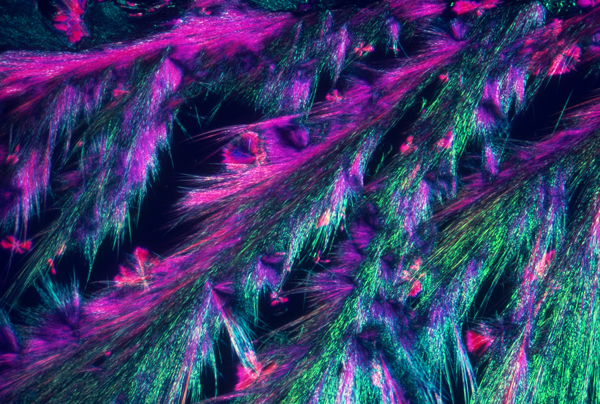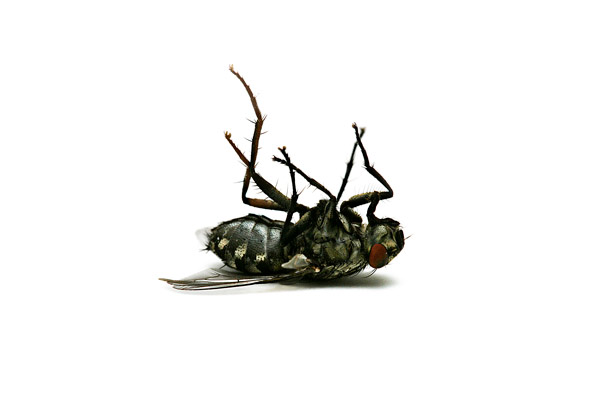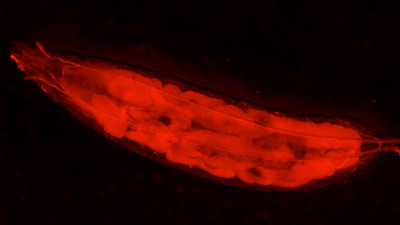
Team Director
Fumiaki Obata
Ph.D.
Laboratory for Nutritional Biology
LocationKobe / Developmental Biology Buildings
E-mailfumiaki.obata[at]riken.jp
Please replace [at] with @.
The organismal healthspan is significantly influenced by the quality and quantity of the diet, but our understanding of the detailed molecular mechanisms remains limited. Diet contributes to the metabolic and physiological homeostasis of animals directly as nutrients or indirectly via gut microbiome, but a detailed understanding of the molecular mechanisms is lacking. In our laboratory, we study the physiological functions of various nutrients and gut bacteria during each life stage, including development, growth, reproduction, and aging, as well as the adaptation mechanisms of animals to nutritional over- and undernutrition. We are also trying to elucidate the mechanisms by which transient dietary intake during development and development influences health status throughout life.
Research Themes
- Lifespan Extension through Dietary Restriction
- Specific Sensing of Nutrients and the Adaptive Mechanism to their Deficiency
- Function of gut microbiome and diet-microbiome-host interactions
- Healthspan changes by early-life dietary environment
Selected Publications
Oi A, Obata F.
Nutrient sensing and signalling of specific amino acids: Insights from Drosophila study.
Current Opinion in Cell Biology
(2025)
doi: 10.1016/j.ceb.2025.102547
Fujita Y, Ishibuchi T, Uematsu A, et al.
Manipulating dietary protein and amino acids in the common marmoset Callithrix jacchus impacts circulating metabolites and FGF21 levels.
Scientific Reports
15 , 31055 (2025)
doi: 10.1038/s41598-025-16749-0
Oi A, Shinoda N, Nagashima S, et al.
A nonsecretory antimicrobial peptide mediates inflammatory organ damage in Drosophila renal tubules
Cell Reports
44(1), 115082 (2025)
doi: 10.1016/j.celrep.2024.115082
Obata F, Miura M.
Regulatory Mechanisms of Aging Through the Nutritional and Metabolic Control of Amino Acid Signaling in Model Organisms.
Annual Review of Genetics
58, (2024)
doi: 10.1146/annurev-genet-111523-102042
Kosakamoto H, Sakuma C, Okada R, et al.
Context-dependent impact of the dietary non-essential amino acid tyrosine on Drosophila physiology and longevity.
Science Advances
10(35), eadn7167 (2024)
doi: 10.1126/sciadv.adn7167
Kosakamoto H, Miura M, Obata F.
Epidermal tyrosine catabolism is crucial for metabolic homeostasis and survival against high-protein diets in Drosophila.
Development
151(1), dev202372 (2024)
doi: 10.1242/dev.202372
Kosakamoto H, Obata F, Kuraishi J, et al.
Early-adult methionine restriction reduces methionine sulfoxide and extends lifespan in Drosophila.
Nature Communications
14(1), 7832 (2023)
doi: 10.1038/s41467-023-43550-2
Onuma T, Yamauchi T, Kosakamoto H, et al.
Recognition of commensal bacterial peptidoglycans defines Drosophila gut homeostasis and lifespan.
PLOS Genetics
19(4), e1010709 (2023)
doi: 10.1371/journal.pgen.1010709
Kosakamoto H, Okamoto N, Aikawa H, et al.
Sensing of the non-essential amino acid tyrosine governs the response to protein restriction in Drosophila.
Nature Metabolism
4(7), 944-959 (2022)
doi: 10.1038/s42255-022-00608-7
News

Dec. 12, 2024 Research
Limiting intake of a non-essential amino acid brings surprising benefits to flies

Mar. 26, 2024 Research
Flies fed restricted diet in early adulthood live longer

Mar. 15, 2024 BDR News
Dive into BDR's intriguing research
The Desire to Explain Nutrition Properly

Jul. 28, 2023 Research
How a gut microbe causes flies to live fast and die young

Oct. 17, 2022 Research
‘Non-essential’ building block proves vital to a healthy protein diet

Apr. 12, 2021 BDR News
Five new laboratories join RIKEN BDR




